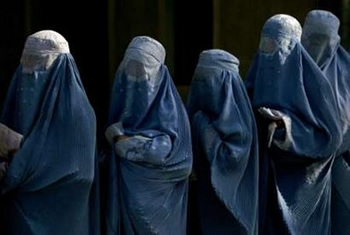01-05-2024
Asuman Ece Yıldız
Middle East Researcher,
Global Human Rights Defence.
On April 30th, 2024, the International Court of Justice (“the ICJ” or “the Court”) issued a pivotal ruling in the case brought forth by Nicaragua against Germany concerning the imperative duty of states to prevent genocide and the contentious issue of weapon supplies. Nicaragua had fervently urged the Court to enact provisional measures, specifically calling for a cessation of Germany’s military assistance to Israel, citing concerns that such aid could be facilitating serious violations of international humanitarian law and potentially the Genocide Convention.
Nicaragua’s arguments on 8 April pleadings: Germany had undeniable knowledge of genocide
Central to Nicaragua’s argument was the assertion that Germany’s role as the second-largest arms supplier to Israel, after the United States, bore significant ethical and legal implications. [3] Nicaragua emphasised a sharp escalation in the authorisation of exports of military equipment and war weapons by the German government, surpassing 326 million Euros, a tenfold increase compared to the figures from 2022. Of particular concern were the export licences amounting to approximately 9 million Euros issued in early 2024, indicating a sustained and substantial flow of weapons to Israel.
Nicaragua’s plea for provisional measures before the ICJ encapsulated three key demands:
“(1) Germany must immediately suspend its aid to Israel, in particular its military assistance, export and authorization of export of military equipment and war weapons, in so far as this aid is used or could be used to commit or to facilitate serious violations of the Genocide Convention, international humanitarian law or other peremptory norms of general international law;
(2) Germany must immediately ensure that military equipment, war weapons, and other equipment used for military purposes already delivered by Germany and German entities to Israel are not used to commit or to facilitate serious violations of the Genocide Convention, international humanitarian law or other peremptory norms of general international law;
(3) Germany must resume its support and financing of UNRWA in respect of its operations in Gaza.”
Crucial to Nicaragua’s argument was the timeline of events, highlighting instances where international bodies, including the United Nations and the International Committee of the Red Cross, had issued stark warnings regarding the deteriorating humanitarian situation in Gaza. They pointed to statements made by the UN Secretary-General and the International Committee of the Red Cross in October, indicating that Germany was fully cognizant of the grave violations occurring in the region.
Moreover, Nicaragua underscored Germany’s undeniable knowledge of the potential for genocidal activities following the ICJ’s ruling in the South Africa v. Israel case on January 26, 2024. Nicaragua asserted that “from that moment on, the alarm was sounded, and the indications of genocidal activities were flashing red.” Despite this, Germany continued its arms exports to Israel unabated, prompting Nicaragua to argue that the alarms of impending humanitarian crises were being ignored.
Germany’s arguments: They are not “war weapons”; they are “other military equipments”
Germany, in its defence, outlined its national legal framework governing the issuance of export licences for military equipment. It differentiated between “war weapons” and “other military equipment,” asserting that the items supplied to Israel fell into the latter category. Germany maintained that the approval process for military exports was rigorous, involving multiple ministries and meticulous risk assessments to ensure compliance with international law.
Additionally, Germany sought to mitigate concerns by revealing that only a handful of licences for “war weapons” had been granted to Israel since October, with a noticeable decrease since November 2023. Regarding UNRWA, Germany defended its commitment to humanitarian aid, citing recent financial contributions to the European Union’s efforts in Gaza.
ICJ’s ruling on the Nicaragua case is disappointing
In its ruling, while acknowledging the dire living conditions in Gaza, the ICJ opted against issuing emergency measures against Germany, voting 15 to 1 against such actions. The court cited the absence of circumstances necessitating immediate intervention, referencing its earlier acknowledgement of the grave situation in Gaza in a previous order. Ultimately, while the ICJ’s decision allows Nicaragua’s case against Germany to proceed, it does not mandate immediate changes in Germany’s arms export policies or its support for UNRWA.
Sources and further reading
Al-Jaazera, ‘ICJ rejects emergency measures over German arms exports to Israel’, 30 April 2024 <ICJ rejects emergency measures over German arms exports to Israel | Israel War on Gaza News | Al Jazeera > accessed 1 May 2024
Middle East Eye, ‘War on Gaza: ICJ allows Nicaragua case against Germany to proceed‘, 30 April 2024 <War on Gaza: ICJ allows Nicaragua case against Germany to proceed | Middle East Eye> accessed 2 May 2024
BBC, ‘Gaza war: Where does Israel get its weapons?’, 15 April 2024 < Gaza war: Where does Israel get its weapons? (bbc.com)> accessed 1 May 2024
International Court of Justice, Public sitting held on Monday 8 April 2024, at 10 a.m., at the Peace Palace, President Salam presiding, in the case concerning Alleged Breaches of Certain International Obligations in respect of the Occupied Palestinian Territory (Nicaragua v. Germany, (Verbatim record, 2024) Paragraph 11, accessed 3 May 2024.
International Court of Justice, Public sitting held on Monday, 8 April 2024, at 10 a.m., at the Peace Palace, President Salam presiding, in the case concerning Alleged Breaches of Certain International Obligations in respect of the Occupied Palestinian Territory (Nicaragua v. Germany), (Verbatim record, 2024) Paragraph 12, accessed 3 May 2024.
International Court of Justice, ‘Order of 30 April 2024 Procedure(s): Provisional measures in the case concerning Alleged Breaches of Certain International Obligations in respect of the Occupied Palestinian Territory (Nicaragua v. Germany, (Order, 2024), Paragraph 11, accessed 3 May 2024






Comments